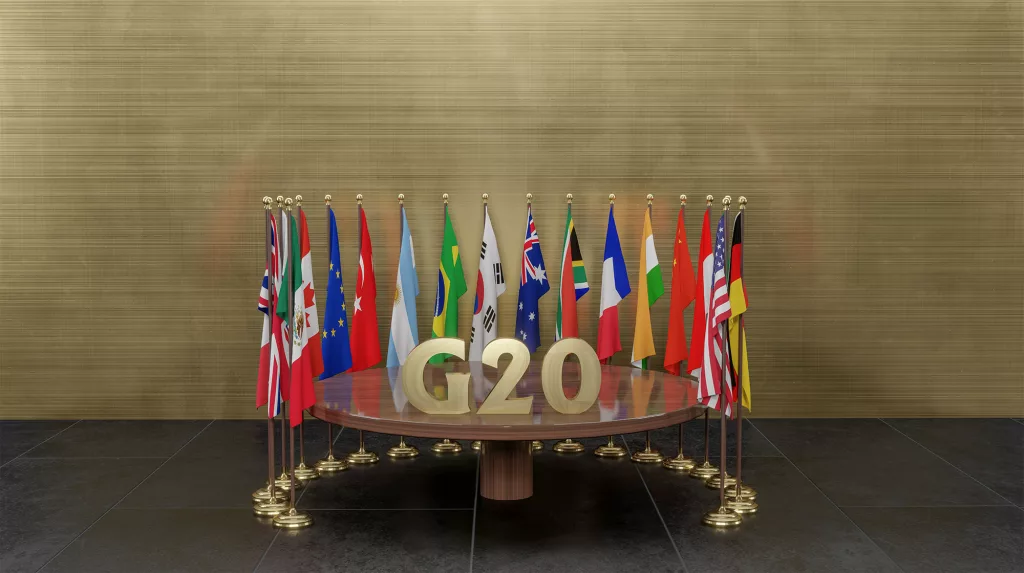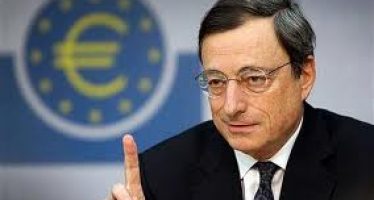The Rise and Fall of Globalisation — and the G20’s Role in World Trade
International body formed from the G7 is facing fresh challenges, reports Brendan Filipovski.

Globalisation was full of promise — until the 1997 Asian Financial Crisis and the 1998 Russian debt crisis.
There were concerns that openness to trade created channels for financial and economic contagion — and fears for the equity of globalisation, punctuated by the Seattle WTO protests in 1999. As the G7 grappled with these issues, the G20 emerged.
Now it, too, is facing its challenges.
The G7 was formed in 1976 to ensure stability after the economic crises of the 1970s — and to oppose Soviet influence. But with the collapse of the Soviet Union in 1991 and the creation of the WTO in 1994, the focus of the G7 changed. Several countries, China among them, were growing in economic influence.
In September 1999, G7 finance ministers and central bank governors presented the G20 as “a more inclusive and representative forum” to focus on international financial affairs that could translate the “benefits of globalisation into higher incomes and better opportunities for people everywhere”.
Membership was to include countries “whose size or strategic importance gives them a particularly crucial role in the global economy”. The G20’s inaugural meeting was held in Berlin in December 1999.
It consists of the G7 countries, plus 12 emerging nations and the EU. International bodies — including the Financial Stability Board, the ILO, IMF, OECD, UN, World Bank and the WTO — provide regular input.
The G20 countries represent around 65 percent of the world’s population, 79 percent of global trade, and at least 85 percent of the world economy. Initially it was an annual meeting of finance ministers and central bank governors (the financial channel). In 2008, a leader’s summit was added. Typically, governments appoint key public servants, dubbed “Sherpas”, to work on agenda outside those of the finance channel.
Like the G7, there is no secretariat or charter. Instead, there is a revolving presidency between regional groups. Host country organise each summit and set the agenda. At the end of each summit, a communique expresses member consensus. This, along with the actions of the G20 members, shapes global policies and institutions.
The G20’s initial focus was reducing vulnerabilities to financial crisis through best-practice regulation and supervision. There was also a commitment to spread the benefits of globalisation through support of the WTO, and the IMF and World Bank HIPC (Heavily Indebted Poor Countries) initiative.
After 9/11, the G20 looked at measures to thwart terrorist funding. Perhaps its finest hour was in the response to the 2007-09 Global Financial Crisis. In 2009, it collectively agreed to stimuli worth $5tn. It also agreed to support increased capacity for the IMF, and provided input to financial regulatory and prudential standards developed under Basel III agreements on banking supervision. The deadline for Basel III was extended because of the financial crisis.
Other highlights include the 2016 summit in Hangzhou, where China and the US formally announced their countries’ accession to the Paris Agreement on climate change. The 2021 Summit in Rome saw a commitment to a fairer international taxation system, including the introduction of a 15 percent global minimum corporate tax by 2023.
Many have been disappointed with the G20’s failure to prevent a trade war between the US and China — and its lack of a co-ordinated response in the face of the pandemic.
The conflict in Ukraine is now posing a problem for the G20, given Russia’s membership. At the G20 meeting of finance ministers in Indonesia in 2022, there was no consensus, and no joint communique was issued.
While the actions of the G20 may be curtailed because of the tensions between China, Russia, and other members, all these countries have a forum outside the UN to discuss key economic and political issues.
Members are Argentina, Australia, Brazil, Canada, China, France, Germany, India, Indonesia, Italy, Japan, Republic of Korea, Mexico, Russia, Saudi Arabia, South Africa, Turkey, the UK, the US, and the European Union.
You may have an interest in also reading…
Otaviano Canuto: Some Economies May Soon Face a Hard Landing
Weaker performance of emerging markets is expected in the immediate future. This year began with simultaneous signs of a slowdown
ECB | European Central Bank: President’s Address at the 14th ECB and its Watchers Conference
Mario Draghi, President of the ECB, Frankfurt am Main, 15 June 2012 Ladies and Gentlemen, It is a great pleasure to
Why Even the Most Profit Centered Businesses Should Care About ESG Issues
Investors and corporations that do not have an explicit mandate to manage social or environmental issues still have an implicit















































































